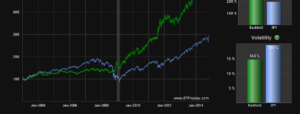
Photo Credit: Official GDC/Flickr.com
According to a Newzoo report, the total gaming market worldwide was estimated to grow 8.5% over the year to $99.6 billion in revenues in 2016. This is also the first year when mobile gaming will account for a bigger share than PC games. Mobile gaming was estimated to bring in $36.9 billion in revenues, growing 21.3% over the year. The global gaming market is expected to grow 6.6% annually over the next three years to be worth $118.6 billion in 2019 with mobile gaming accounting for $52.5 billion of these revenues.
Kabam’s Offerings
Kabam was founded in 2006 by Kevin Chou, Michael Li, and Holly Liu in San Francisco to create a social sports community leveraging Facebook. While Kabam began on Facebook, it soon diversified onto other online platforms including mobile devices and Web platforms to become a social gaming company of its own standing.
Kabam operates on a freemium model by allowing users to play their games for free and by earning revenues through sale of premium content and virtual goods. The company managed to publish some very popular titles in the gaming community. It is best known for its strategy game Kingdoms of Camelot. Besides developing its own games, Kabam is also a publisher for third party game developers. It has also tied up with Hollywood studios such as Disney, Universal, and Warner Brothers to deliver mobile games based on franchises including Marvel, The Hobbit, and Fast & Furious.
Kabam does not disclose its revenues, but it claims to have four titles that have grossed more than $100 million in their lifetime besides the popular Kingdoms of Camelot, which has already grossed more than $250 million. The company claims to have been profitable since 2012. Other market reports suggest that Kabam’s revenues grew from $180 million in 2012 to $360 million in 2013 and to $400 million in 2014.
Kabam has been venture funded so far with $245 million raised from investors including Alibaba, Intel Capital, Redpoint Ventures, Canaan Partners, SK Telecom Ventures, Performance Equity Management, Pinnacle Ventures, and Betfair. It last raised funds in July 2014 when it secured $120 million from Alibaba at a to create a social sports community. More recent valuation is not known, but some analysts believe that it may no longer be a billion dollar company.













Leave A Comment